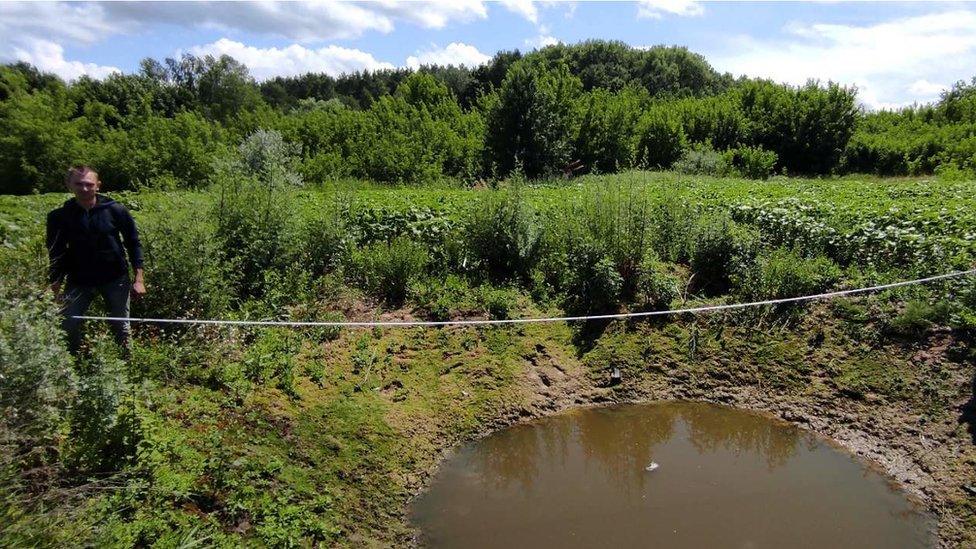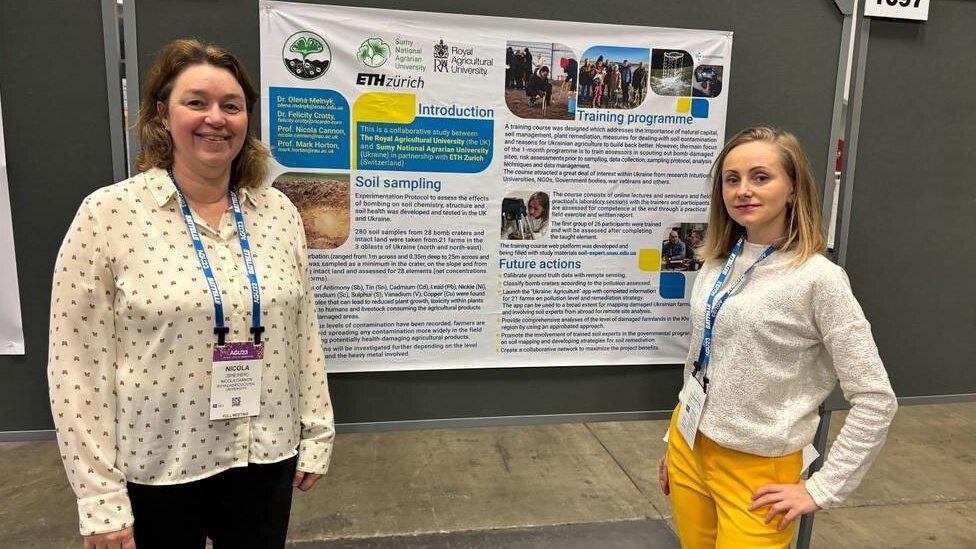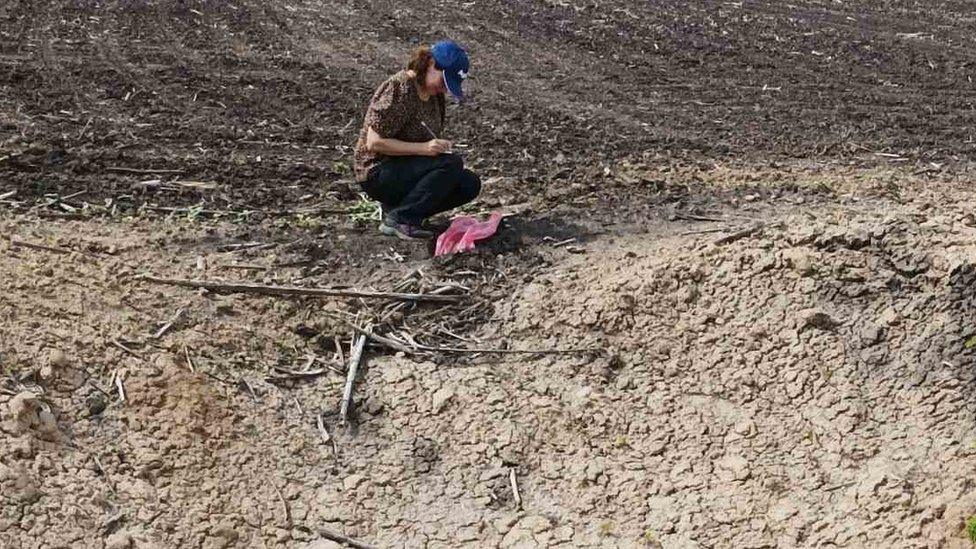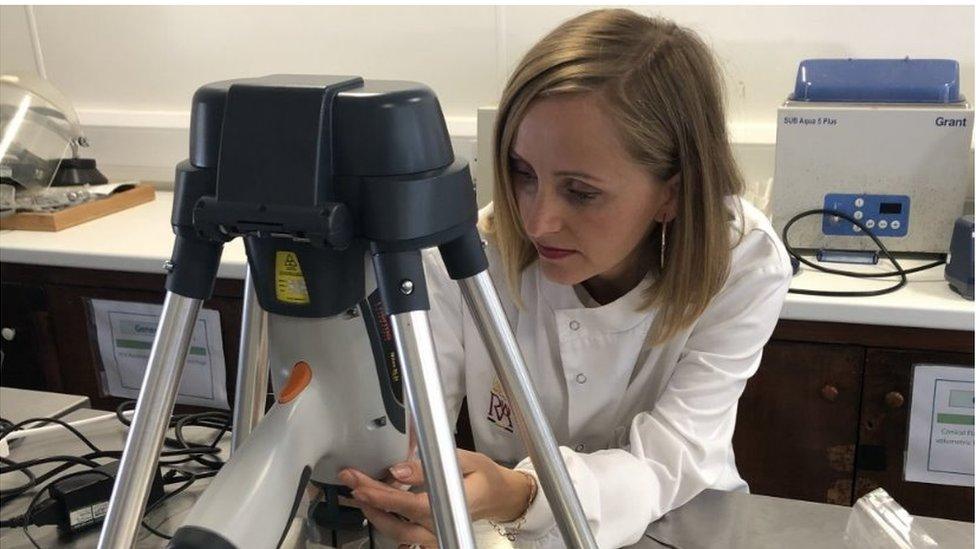Cirencester researchers help find contaminated farmland in Ukraine
- Published

People have been trained to test bomb craters in Ukraine
Academics helping Ukrainians to study soil in bomb-hit farmland say have found surprising levels of contamination in some craters.
The Royal Agricultural University (RAU) in Cirencester is helping prevent contamination entering the food chain.
Professor Nicola Cannon said: "The farmers are a very resilient bunch. The problem is if they just put the soil back into the holes."
They have initially tested 28 craters, uncovering samples of mercury and lead.
"If there was something like mercury or lead or, worse than that, like depleted uranium in the bomb, then with the cultivation, that could end up in the food chain."

Professor Nicola Cannon from the RAU and Associate Professor Olena Melnyk from Ukraine have been sharing their results with other scientists
Contamination by heavy metals has the potential to impact human health long after the war has ended.
Prof Cannon said: "We've seen levels of mercury, lead, various metals, copper....which was surprising as it's such a valuable element, but we found one crater had very high levels, which probably means some was stuck in a bomb."
To work out how to find polluted soil, RAU staff, alongside researchers from Sumy National Agricultural University (SNAU) in Ukraine, developed a sampling method on Salisbury Plain in Wiltshire.
Soil samples are then analysed using specialist equipment from the RAU's Cirencester campus.

The heavy metals found in some of the craters could contaminate the food chain if not found
Trainers are now being taught to show others in Ukraine how to check bomb craters.
Prof Cannon said: "These farmers cannot afford to wait until the end of the war to correct land which has been damaged and contaminated by bombs.
"They need immediate, and ongoing, help to know what parts of their land are safe, and unsafe, to use for crops."

Follow BBC West on Facebook, external, X, external and Instagram, external. Send your story ideas to: bristol@bbc.co.uk , external
Related topics
- Published7 September 2023
